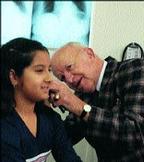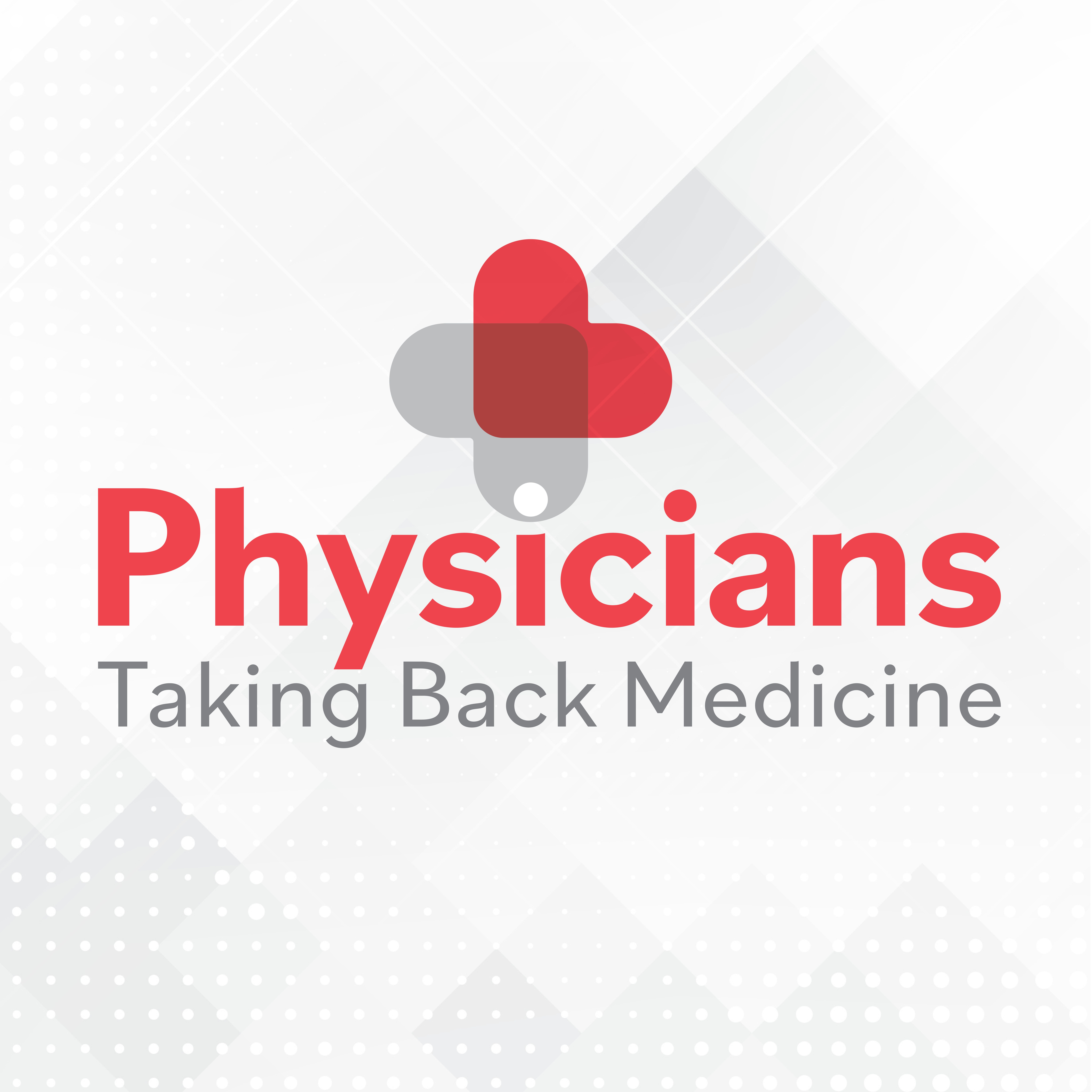Article
Robert McCool, MD: Opening doors to the uninsured
Opening doors to the uninsured
Doctors Who Go the Extra Mile
Robert McCool, MD
Opening doors to the uninsured
By Berkeley Rice, Senior Editor

Robert McCool (above) examines Isis Salas at the Clarion Free Clinic.
Fifteen years ago, after a busy day in his Clarion, IA, office, GP RobertMcCool rushed to see a nursing home patient with severe pneumonia. "WhenI called Medicare for authorization to admit her to the hospital,"he recalls, "I got into a heated argument with some clerk over DRGs."Later that night, still steaming, McCool himself was rushed to the hospitalwith a heart attack, and then flown to Des Moines for an angioplasty. Duringthat helicopter ride, he decided to retire, at age 63.
For McCool, however, retirement didn't mean an end to practicing medicine.After several months off, he became restless. So for the next decade, hedid locum tenens stints with the Indian Health Service in several Westernstates. During the winter months, he and his wife Kitty, a lab technician,served as volunteers at medical missions in the Caribbean. They've spentthe past two winters in Sarasota, FL, where they volunteer at a nonprofitclinic staffed by retired physicians. McCool also made a trip to Kosovoas a medical missionary.
In 1991, inspired by his missionary work abroad, McCool decided to launchhis own free clinic in Clarion (pop. 2,700). His goal was to serve the manyuninsured Latino workers at the huge chicken, hog, and egg farms in thearea. "We also have a lot of farm families around here who can't afford$600 a month for coverage," he adds.
It took McCool two years to get the state medical society's support,and to convince the state legislature to pass a law that provides malpracticeinsurance for qualified retired physicians willing to staff free clinics.
The Clarion Free Clinic got started in 1995, in space donated by thelocal hospital, Community Memorial. Open on Tuesday and Thursday evenings,it's staffed by McCool, several retired nurses, and other volunteers, includinghis wife. Traffic was slow at first. "It took time to build trust withpeople who weren't used to seeing doctors," says McCool. As word gotaround, however, walk-ins began showing up. The clinic now attracts about100 patients a month, from as far away as 50 miles. They pay whatever theycan for lab and radiology services; the rest is free.
Thanks to McCool's persuasive skills, the clinic receives financial supportfrom local charities, churches, and employers. With those contributions,plus labwork and tests performed by hospital staff for nominal charges,the clinic has very little overhead.
Despite a quintuple bypass last year, McCool, now 78, keeps up with medicaljournals and CME courses. But the clinic itself provides the best continuingeducation. Through his work there, he explains, "I've learned the importanceof having empathy for my patients, and never underestimating their dignity.
"I love medicine," says McCool. "I'm lucky I can stillpractice at my age, and I hope to continue as long as I feel I can. Butas a backup, my wife has promised to tell me when she thinks it's time tostop."
*See "Senior doctors, senior care: An idea that works," Oct.19, 1998 (available at www.memag.com).
Berkeley Rice. Robert McCool, MD: Opening doors to the uninsured.
Medical Economics
2000;1:161.





